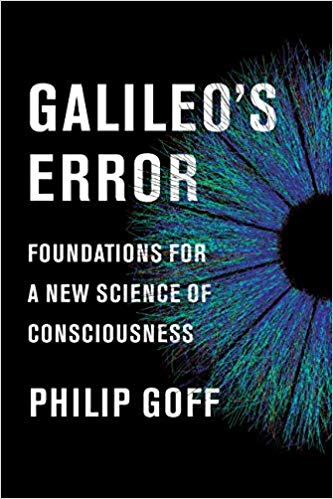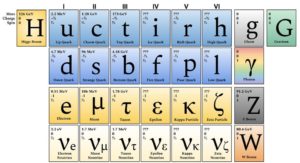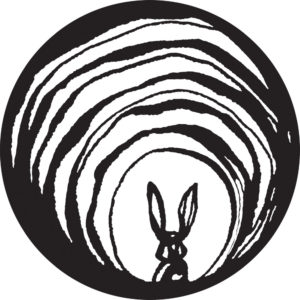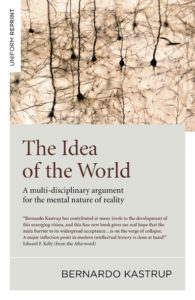 In the midst of the COVID-19 sheltering I have been slowly digesting Phillip Goff’s book Galileo’s Error and recommend it highly as a must-read for anyone interested in human consciousness. Or any reductionist who might read these words. Heck, anyone interested in the existential state of humanity which should include every sentient being on this planet. Read it. Despite the fact that Goff and I might be distant cousins, his work is quite cogent and accessible even if you’re not a philosopher.
In the midst of the COVID-19 sheltering I have been slowly digesting Phillip Goff’s book Galileo’s Error and recommend it highly as a must-read for anyone interested in human consciousness. Or any reductionist who might read these words. Heck, anyone interested in the existential state of humanity which should include every sentient being on this planet. Read it. Despite the fact that Goff and I might be distant cousins, his work is quite cogent and accessible even if you’re not a philosopher.
Spoiler alert:If you don’t want to know what Galileo’s error actually was don’t read the following paragraph.
Per Goff, the error Galileo made at the dawn of the Enlightenment was to separate (human) consciousness from material reality. The qualia of human existence (consciousness) is independent of the physical definitions inherited from the (essentially) mathematical nature of reality, or so Galileo posited. As a result, the difficult problem of (explaining) consciousness has alluded the best of scientific minds.
But what if things are actually that simple?
What if Galileo was actually correct? We’ll get back to that thought in a few paragraphs. But first let’s consider human consciousness.
The hard problem of consciousness is only hard because of our need to fully explain human consciousness sans extra-normal artifacts. In other words, if we can’t fit it in to the standard model of particle physics it does not exist. As foolish as that may sound on the surface, that is actually the view of some scientists and philosophers: human consciousness is easily explained because it is only an illusion. 
Seriously.
Are we left with two and only two choices? Panpsychism on one hand which posits the essential nature of the universe is consciousness, or that consciousness is imbued it matter at a fundamental level, juxtaposed to the physicalist view on  the other, where the rabbit hole necessarily leads to the denial of consciousness altogether?
the other, where the rabbit hole necessarily leads to the denial of consciousness altogether?
Another recent read I have enjoyed is Bernardo Kastrup’s recent work on Metaphysical Idealism he called The Idea of the World.
I have followed Kastrup’s work for some time now, especially his thoughts regarding Artificial Intelligence. As a philosopher and a computer scientist, his multi-disciplinary views are insightful and well considered. One quote I found from him is especially sage, in my view:
The chances that currently-envisioned AI systems will ever produce consciousness are about as good as that a detailed simulation of kidneys running in your computer will ever cause the computer to urinate on your desk. — Bernardo Kastrup
Bottom line: we create the universe with our thoughts. That’s not to say that the universe fails to exist if I’m not looking. Read Kastrup’s tome for a more detailed explanation. We are thought as is everything we see. Yes, it is metaphysical. Of course, proof from a physicalist perspective will never be sufficient. Reductionism is, by it’s very nature, limited. Alas, science is what it is. Today science is more of a religion than are religions. It’s amusing and disturbing how frequently the term science is used to justify such unscientific views from which many politicians and activists make a living. But I don’t want to go there. Politics is theater at best and much more profane than theater may have ever aspired to be. I would rather avoid such discussions in the name of science.
So where does that leave us?
If Kastrup and Goff are correct or even close to being correct, the idea that consciousness can emerge from machine programming is absurd. How then is Artificial General Intelligence ever achieved. Artificial faith?
Faith is the foundation upon which all our thoughts and beliefs are built. Even if you are a hard-core atheist, you have faith that some aspect of your perception is valid. Even if you believe we live in the Matrix, you have faith in your ability to think, to perceive, and to reason. Where does that faith come from? Is it built in? Does faith emerge? Is it programmed? What perspective must our machines adopt in order to become consciousness? Why do you believe what you believe?
There is no such thing as an objective observer. If, as the physicalist rabbit hole teaches us, there is not such thing as objective reality, then how can an objective observer exist? If, as a faith-laden believer supposes, there is a greater-than-me God Creator from which all reality flows, how can any observer ever attain that objective level of perception?

The physicalist rabbit hole leads two one of two choices: either consciousness doesn’t exist, or we do not yet have a model of reality that is sufficient to explain the most common attribute of sentient humanity. Neither of those options is palatable. The panpsychist suggests that everything is consciousness. But does everything have consciousness or is everything made of consciousness?
Alas, all theories of reality beg the basic question: what is consciousness?
And finally, what is Artificial Faith? I’m not certain. But I think our machines will need something like Artificial Faith if our Pinocchio is ever going to become a real boy — or girl, as the case may be. Must a specific gender be programmed? That is the question for another day.


Leave a Reply